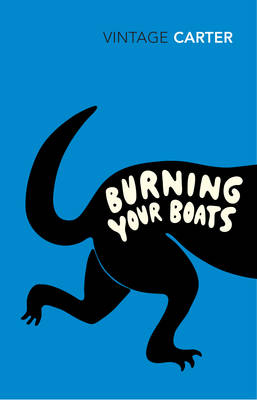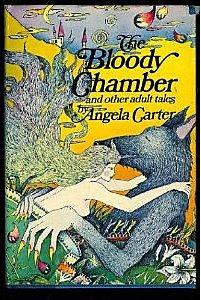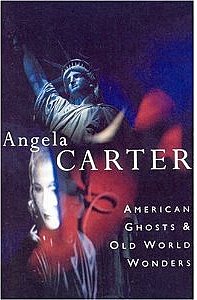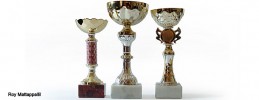
photo by Kristen Brown
by Pauline Masurel
Angela Carter once said that her stories were like ‘dreaming in public’. Dr Sarah Gamble, a specialist in contemporary women’s writing and Reader of Gender Studies at Swansea University, says that when her students encounter Carter’s writing today, twenty years after the writer’s death, they do not see it as being ‘dated’ in any sense. For readers and students of Carter’s work, the public dreams and nightmares encapsulated in her extraordinary tales remain as vivid and vital as ever.
His contagious conviction that our love was unique and desperate infected me with an anxious sickness; soon we would learn to treat one another with the circumspect tenderness of comrades who are amputees, for we were surrounded by the most moving images of evanescence, fireworks, morning glories, the old, children.
— from ‘A Souvenir of Japan’
 For several years in the 1970s, Carter lived in Bath, and at this year’s Bath Literature Festival, a number of events celebrated her work. These included a screening of the Kim Evans film, Angela Carter’s Curious Room, which features the last interview Carter gave before her death in 1992, aged just fifty-one. I was lucky enough to be able to attend two of the discussion events which focussed on her life and her short stories.
For several years in the 1970s, Carter lived in Bath, and at this year’s Bath Literature Festival, a number of events celebrated her work. These included a screening of the Kim Evans film, Angela Carter’s Curious Room, which features the last interview Carter gave before her death in 1992, aged just fifty-one. I was lucky enough to be able to attend two of the discussion events which focussed on her life and her short stories.
The first of these, Angela Carter: The Life, fielded a panel comprised of Susannah Clapp, author of A Card from Angela Carter (2012), Carmen Callil, writer, critic and founder of Virago Press, Sarah Gamble, author of Angela Carter: A Literary Life (2005), and Deborah Rogers who was Carter’s literary agent. The session began with Susannah Clapp inviting the other speakers to say why they personally felt that Angela Carter mattered. Carmen Callil chose to highlight what she referred to as Carter’s ‘genius’, describing her as a writer who took her work to another level. Deborah Rogers added that she mattered for her ‘courage and humility’, saying that Carter summed up the period she lived in and that she was also very funny. For Sarah Gamble, Angela Carter mattered because ‘she never mellowed’ and because her work still speaks to young people today.
Before he can become a wolf, the lycanthrope strips naked. If you spy a naked man among the pines, you must run as if the Devil were after you.
— from ‘The Company of Wolves’
Susannah Clapp saw Carter’s strength lying in the fact that she was never a narrowly ‘realist’ writer and that when she tackled political and feminist issues in her fiction she often did so in a metaphorical way. Sarah Gamble used a metaphor of her own when she described Carter’s work as walking a tightrope between the wonderfully baroque and the over-wrought. Although the speakers praised Carter’s use of language, they agreed that they didn’t like to see other writers slavishly attempting to imitate her florid style of prose. Instead, they suggested that new writers should take inspiration from Carter’s fearlessness, outspokenness and use of intertextuality, and to carry these characteristics forward in their own writing.
tackled political and feminist issues in her fiction she often did so in a metaphorical way. Sarah Gamble used a metaphor of her own when she described Carter’s work as walking a tightrope between the wonderfully baroque and the over-wrought. Although the speakers praised Carter’s use of language, they agreed that they didn’t like to see other writers slavishly attempting to imitate her florid style of prose. Instead, they suggested that new writers should take inspiration from Carter’s fearlessness, outspokenness and use of intertextuality, and to carry these characteristics forward in their own writing.
A cold day of late October, when the withered blackberries dangled like their own dour spooks on the discoloured brambles. There were crisp husks of beechmast and cast acorn cups underfoot in the russet slime of the dead bracken where the rains of the equinox had so soaked the earth that the cold oozed up through the soles of the shoes, lancinating cold of the approaching winter that grips hold of your belly and squeezed it tight. Now the stark elders have an anorexic look; there is not much in the autumn wood to make you smile but it is not yet, not quite yet, the saddest time of the year. Only, there is a haunting sense of the imminent cessation of being; the year, in turning, turns in on itself. Introspective weather, a sickroom hush.
— from ‘The Erl-King’
At a second event, Angela Carter: The Short Stories, Sarah Gamble was joined in discussion by the impressive duo of short fiction writers, Helen Simpson and Michele Roberts. When asked what they thought Carter’s special ‘gift’ was, Simpson commended the ‘richness and density’ of her language. For Roberts, it was the intensity of the writing, derived from the use of metaphor, and used to map a character’s innermost world onto their outer world. Carter, she said, is often thought of as a writer of ‘surfaces’ and embellishment but she uses description to symbolically delve beneath the surface. Her tales are both embroidered and allusive, Roberts argued, and can be appreciated on many different levels.
…sometimes he seemed to me like a lily. Yes. A lily. Possessed of that strange, ominous calm of a sentient vegetable, like one of these cobra-headed, funereal lilies whose white sheaths are curled out of a flesh as thick and tensely yielding to the touch as vellum.
— from ‘The Bloody Chamber’
 Although she was fantastic at representing the sensuous and the visual, Carter was far less adept at writing dialogue which only infrequently features in her short stories. The speakers felt that, to some extent, this was because the primary speech mode within some of the stories is the narrative ‘voice’ itself. They also discussed the joys and the difficulties of reading some of Carter’s fiction aloud (for anyone wanting to hear the magic of Angela Carter’s words for themselves, the British Library recently published an audio book which includes her own reading of ‘The Snow Child’). Simpson summed up what she saw as one of the most important facets of Carter’s fiction, saying that her stories ‘encapsulate the possibility for change.’
Although she was fantastic at representing the sensuous and the visual, Carter was far less adept at writing dialogue which only infrequently features in her short stories. The speakers felt that, to some extent, this was because the primary speech mode within some of the stories is the narrative ‘voice’ itself. They also discussed the joys and the difficulties of reading some of Carter’s fiction aloud (for anyone wanting to hear the magic of Angela Carter’s words for themselves, the British Library recently published an audio book which includes her own reading of ‘The Snow Child’). Simpson summed up what she saw as one of the most important facets of Carter’s fiction, saying that her stories ‘encapsulate the possibility for change.’
And each stroke of his tongue ripped off skin after successive skin, all the skins of a life in the world, and left behind a nascent patina of shiny hairs. My earrings turned back to water and trickled down my shoulders; I shrugged the drops off my beautiful fur.
— from ‘The Tiger’s Bride’
Before Angela Carter died she had apparently selected her ‘Desert Island Discs’ for a programme that was never recorded. I think it says something about her flair, flamboyance and wit that her chosen book was the culinary bible Larousse Gastronomique and her chosen luxury a zebra.
*
Carter published four collections of short stories: Fireworks (1974), The Bloody Chamber (1979), Black Venus (1985), and the posthumously published American Ghosts & Old World Wonders (1993). All are available in the single-volume anthology Burning Your Boats (1995), which also includes three previously uncollected stories.
In a recent THRESHOLDS article, Carnivore Incarnate, Morgaine Davidson writes about Carter’s ‘The Company of Wolves’ and other stories from The Bloody Chamber.

